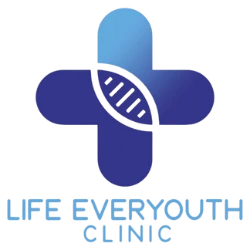Bali’s tropical climate makes it a dream destination for sun lovers, but excessive sun exposure can result in sunburn. Many travelers underestimate the sun’s intensity, especially near the equator, leading to painful burns. Sunburn not only causes discomfort but also raises the risk of skin damage and long-term health concerns. Similar to most of common diseases in Bali, this condition can be avoided with the right precautions. Knowing how to prevent and treat sunburn is crucial, and Life Everyouth Bali offers expert guidance to help ensure a safe and enjoyable trip.
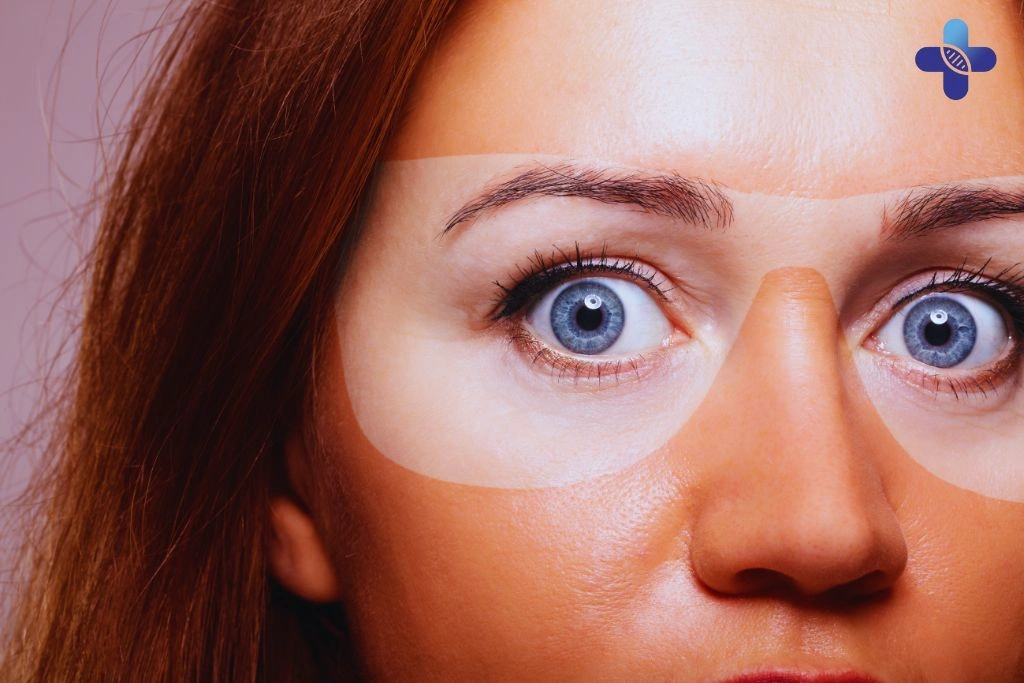
Sunburn in Bali: Understanding the Causes, Best Prevention Methods, and Effective Treatment Options for Quick Recovery
Bali’s tropical climate and strong sun exposure make sunburn a common issue for travelers and residents alike. Prolonged exposure to UV rays can lead to skin damage, discomfort, and an increased risk of long-term health concerns. Understanding how sunburn occurs, taking preventive measures such as using sunscreen and protective clothing, and seeking proper treatment when needed can help ensure a safe and enjoyable experience under the Balinese sun. Life Everyouth Bali provides expert guidance and treatment to help manage sunburn effectively and promote fast recovery.
Understanding Sunburn in Bali
Sunburn occurs when the skin is exposed to excessive ultraviolet (UV) radiation from the sun. Bali’s proximity to the equator means UV levels are particularly high, increasing the risk of severe burns. Tourists who spend long hours on the beach or participate in outdoor activities are more susceptible. Without proper sun protection, the skin can become red, swollen, and painful within hours of exposure, something Life Everyouth Bali frequently treats among visitors.
Common Symptoms of Sunburn
Redness and Inflammation of the Skin
One of the earliest and most noticeable symptoms of sunburn is redness and inflammation. This occurs due to excessive UV radiation exposure, which damages the skin cells and triggers an inflammatory response. The affected area may feel warm or hot to the touch and become increasingly irritated over time.
Pain or Tenderness When Touched
Sunburned skin is often sensitive to touch, causing pain or discomfort, especially when pressure is applied. The severity of the pain depends on the extent of the burn. Mild cases may cause slight discomfort, while severe sunburns can result in intense pain that lasts for several days.
Peeling or Blistering in Severe Cases
As the skin heals from sunburn, it may begin to peel or form blisters. Peeling is a sign that the body is shedding damaged skin cells and regenerating new ones. In more severe cases, fluid-filled blisters may develop, which should not be popped, as this can lead to infection and delayed healing.
Fever, Chills, or Nausea in Extreme Conditions
In extreme cases, sunburn can cause systemic symptoms such as fever, chills, nausea, and dehydration. This condition, known as sun poisoning, requires medical attention as it may indicate severe sun damage and potential heat-related illnesses. Staying hydrated and seeking shade immediately can help alleviate these symptoms.
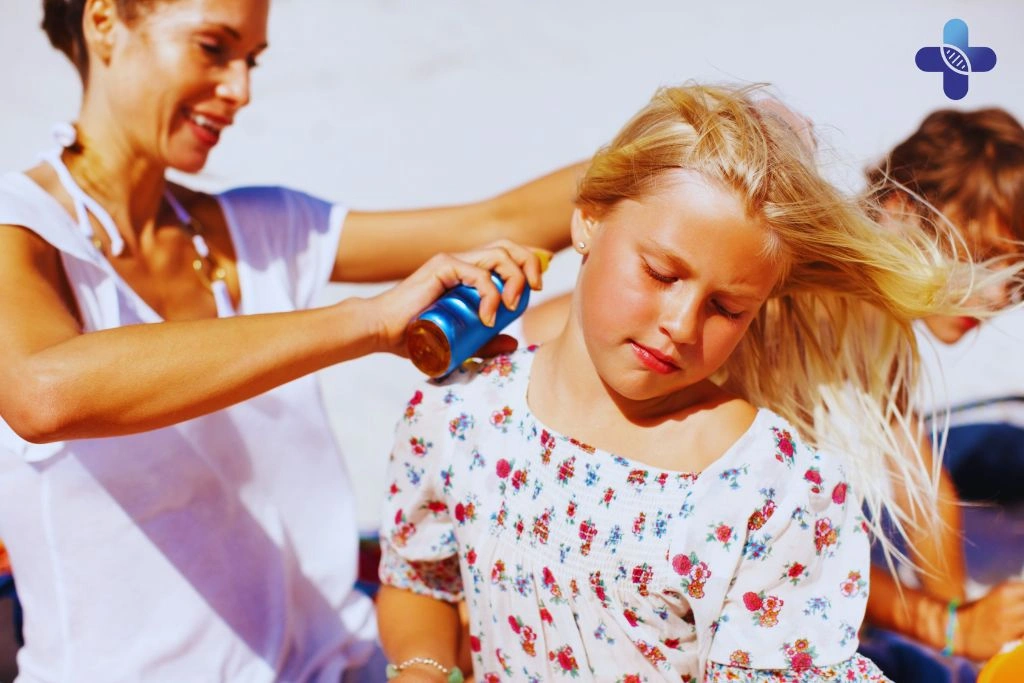
Prevention Tips for Sunburn
Apply Broad-Spectrum Sunscreen Regularly
Life Everyouth Bali strongly recommends using a broad-spectrum sunscreen with SPF 30 or higher to protect against both UVA and UVB rays. Sunscreen should be applied generously at least 15 minutes before sun exposure and reapplied every two hours, or more often if swimming or sweating. Even on cloudy days, UV rays can penetrate through the clouds, making sunscreen a daily essential.
Wear Protective Clothing and Accessories
Covering exposed skin with protective clothing is an effective way to prevent sunburn. Lightweight, long-sleeved shirts and pants made of tightly woven fabrics provide excellent sun protection. Additionally, wide-brimmed hats and UV-blocking sunglasses shield the face, neck, and eyes from direct sunlight, reducing the risk of sun damage.
Seek Shade During Peak Sun Hours
The sun’s rays are strongest between 10 AM and 4 PM, making sunburn more likely during these hours. Staying in the shade, especially under trees, umbrellas, or canopies, can significantly reduce UV exposure. If being outdoors is unavoidable, taking frequent breaks in shaded areas helps minimize the risk of sunburn.
Stay Hydrated to Protect the Skin
Dehydration can make the skin more vulnerable to sun damage. Drinking plenty of water throughout the day helps maintain healthy skin and prevents excessive dryness caused by sun exposure. Life Everyouth Bali encourages staying well-hydrated, especially in hot and sunny climates like Bali.
Be Cautious Around Reflective Surfaces
Water, sand, and even concrete can reflect UV rays, increasing sun exposure and the likelihood of sunburn. When spending time near pools, beaches, or outdoor patios, extra precautions such as reapplying sunscreen more frequently and wearing protective clothing are essential for added protection.
Treating Sunburn in Bali
Stay Hydrated to Restore Skin Moisture
Sunburn depletes the skin’s moisture, leading to dryness and increased discomfort. Drinking plenty of water helps rehydrate the body and support the healing process. Life Everyouth Bali advises increasing fluid intake, including coconut water or electrolyte-rich drinks, to restore hydration levels and prevent further dehydration.
Soothe the Skin with Aloe Vera or Cool Compresses
Applying aloe vera gel provides instant relief by cooling the skin and reducing inflammation. The natural anti-inflammatory properties of aloe vera help speed up the healing process while keeping the skin moisturized. Cool compresses, such as a damp cloth or ice wrapped in a towel, can also help soothe irritation and minimize redness.
Use Over-the-Counter Pain Relievers for Comfort
For moderate to severe sunburn, over-the-counter pain relievers like ibuprofen or acetaminophen can help reduce pain, swelling, and discomfort. These medications work by decreasing inflammation and easing the burning sensation. However, they should be taken as directed to avoid side effects.
Avoid Further Sun Exposure During Recovery
To prevent worsening the condition, Life Everyouth Bali strongly recommends staying out of direct sunlight until the skin fully heals. Sunburned skin is highly sensitive, and additional exposure can cause more damage, delay healing, and increase the risk of long-term skin issues. When going outdoors, wearing loose, protective clothing and staying in shaded areas is essential.
Moisturize Gently and Avoid Harsh Products
Using a gentle, fragrance-free moisturizer can help restore the skin’s natural barrier and prevent excessive dryness. Avoiding harsh skincare products, such as those containing alcohol or exfoliating agents, is crucial, as they can further irritate the skin. Applying a mild moisturizer consistently keeps the affected area hydrated and promotes faster recovery.
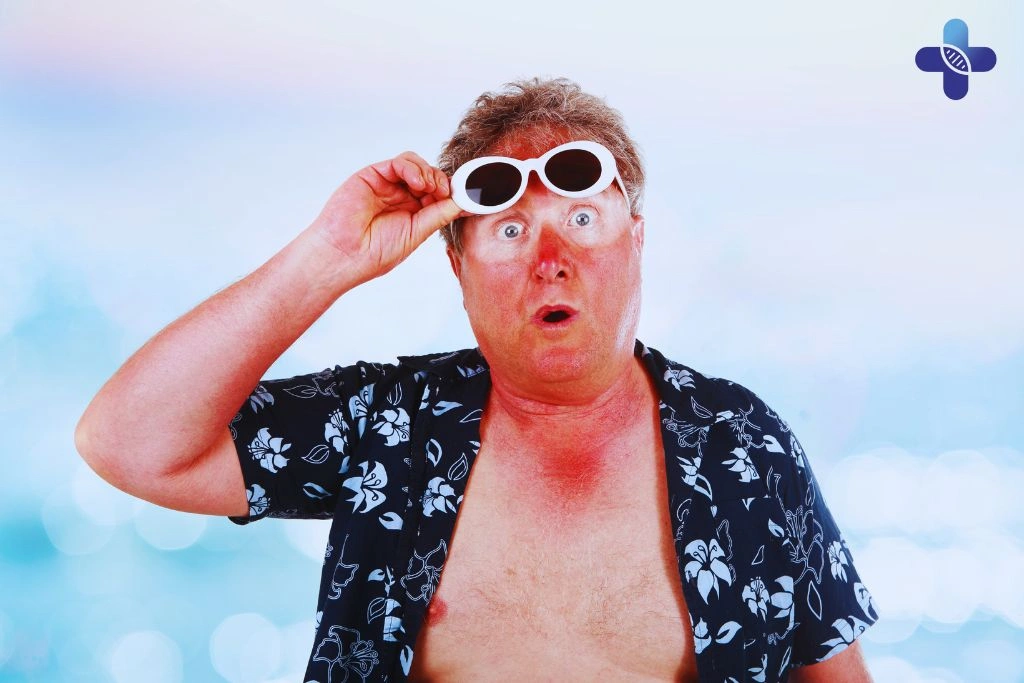
Tips for Quick Recovery
Recovering from sunburn requires proper care to soothe the skin, reduce discomfort, and prevent complications. Life Everyouth Bali recommends the following steps to speed up the healing process and ensure a smooth recovery.
Drink Plenty of Water to Stay Hydrated
Sunburn draws moisture away from the skin, increasing the risk of dehydration. Drinking plenty of water helps replenish lost fluids and keeps the skin hydrated from within. In addition to water, electrolyte-rich drinks like coconut water can help restore balance and prevent excessive dryness.
Apply Moisturizers with Aloe Vera or Chamomile
Using a gentle moisturizer with aloe vera or chamomile helps calm inflammation and promote skin healing. Aloe vera has natural cooling properties that reduce redness and irritation, while chamomile provides soothing relief for sensitive skin. Life Everyouth Bali suggests applying these moisturizers frequently to maintain hydration and prevent peeling.
Take Cool Showers to Soothe the Skin
Cool showers help lower skin temperature, providing immediate relief from the burning sensation caused by sun exposure. Avoid using hot water, as it can further irritate the skin. After showering, gently pat the skin dry and apply a moisturizer to lock in hydration.
Avoid Peeling the Skin to Prevent Infection
As sunburned skin heals, it may start to peel. While it can be tempting to remove peeling skin, doing so can lead to irritation, prolonged healing, and even infection. Life Everyouth Bali advises patients to let the skin shed naturally and continue moisturizing to support recovery. Wearing loose clothing can also prevent friction and irritation on affected areas.
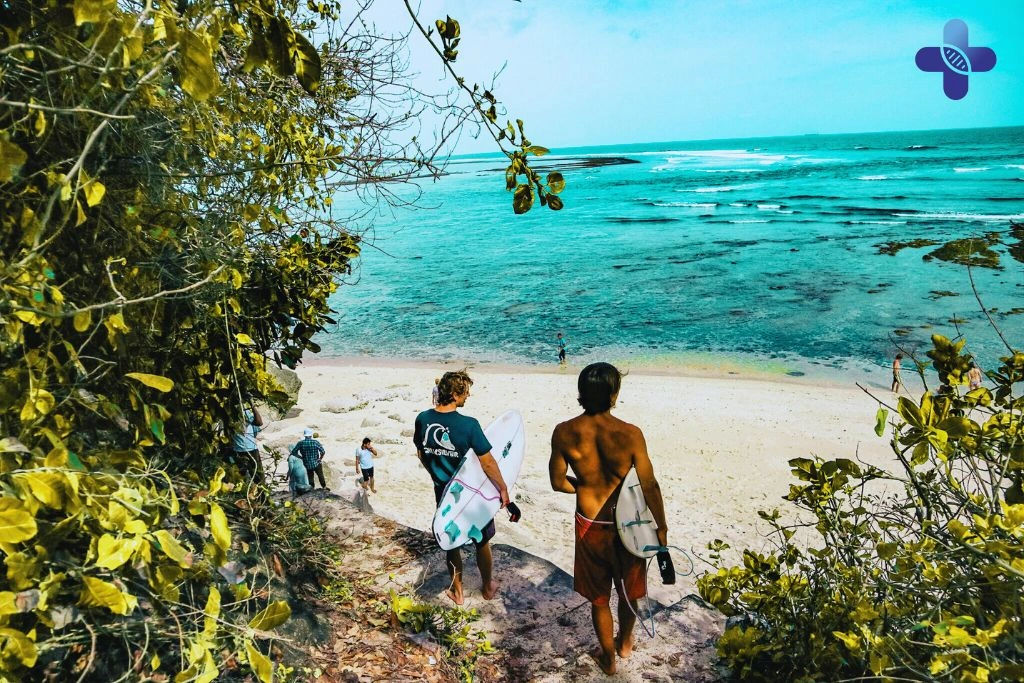
Conclusion of Sunburn in Bali: Prevention & Treatment
Sunburn in Bali is common but preventable with proper precautions. Travelers should be aware of the risks and take necessary steps to protect their skin. If sunburn does occur, prompt treatment can reduce discomfort and promote healing. For professional care and assistance, Life Everyouth Bali is available to help travelers recover and enjoy their stay without further complications.
Frequently Asked Questions (FAQs) of Sunburn in Bali: Prevention & Treatment
How long does sunburn last?
Mild sunburn typically lasts 3 to 5 days, while severe burns can take up to two weeks to heal. In cases of extreme sun exposure, the skin may take longer to recover, especially if blisters form. The healing process can be improved with proper aftercare, including hydration, applying soothing lotions like aloe vera, and avoiding further sun exposure. For severe burns accompanied by fever or chills, Life Everyouth Bali recommends seeking medical attention.
What SPF should I use in Bali?
A broad-spectrum sunscreen with SPF 30 or higher is recommended for Bali’s intense sun. Higher SPF, such as SPF 50, can provide additional protection, especially for those with fair skin or prolonged sun exposure. It is essential to reapply sunscreen every two hours, as well as after swimming, sweating, or toweling off. To minimize sun damage, Life Everyouth Bali suggests using a water-resistant sunscreen and wearing protective clothing.
Can I go to the beach with sunburn?
It is best to avoid further sun exposure until the skin heals, as additional UV radiation can intensify the damage and prolong recovery. If a beach visit is unavoidable, extra precautions should be taken, such as applying a high-SPF sunscreen, wearing protective clothing like long sleeves and a wide-brimmed hat, and staying in the shade. Consider visiting the beach early in the morning or late in the afternoon when the sun is less intense. To manage discomfort, Life Everyouth Bali recommends regular hydration and after-sun care.
What is the best remedy for sunburn?
Aloe vera, cool compresses, and hydration are effective remedies for sunburn. Anti-inflammatory medications like ibuprofen can also help relieve pain and swelling. In more severe cases, applying a gentle moisturizer and avoiding further sun exposure is essential. If sunburn worsens, Life Everyouth Bali provides medical-grade treatments to accelerate healing.
Does sunburn turn into a tan?
Some people may develop a tan after sunburn, but this is a sign of skin damage. Tanning does not prevent future sunburns and increases the risk of skin cancer. Repeated exposure to the sun without protection can lead to premature aging and permanent skin damage. To protect skin health, Life Everyouth Bali advises prioritizing proper sun protection over tanning.
Can sunburn cause fever and chills?
Severe sunburn can lead to sun poisoning, which includes fever, chills, nausea, and dehydration. In extreme cases, individuals may experience dizziness and headaches due to overheating. If symptoms persist, seeking medical attention immediately is crucial. Life Everyouth Bali offers treatments to help patients recover from severe sunburn-related symptoms.
Is coconut oil good for sunburn?
Coconut oil is not recommended for fresh sunburn as it can trap heat and worsen irritation. It is better to use aloe vera or water-based moisturizers to soothe the skin. Once the sunburn starts healing, coconut oil may help restore moisture. For optimal recovery, Life Everyouth Bali suggests using clinically tested after-sun treatments.
How can I sleep comfortably with sunburn?
Sleeping with sunburn can be uncomfortable. Wearing loose, soft clothing, keeping the room cool, and applying aloe vera before bed can help reduce irritation. Sleeping on soft sheets with minimal friction prevents further discomfort. Life Everyouth Bali also recommends taking an anti-inflammatory medication before bedtime to ease pain and improve sleep.
Should I pop blisters caused by sunburn?
No, popping blisters can increase the risk of infection and slow down healing. Keeping them intact and applying a gentle moisturizer can aid recovery. If a blister breaks on its own, cleaning the area with mild soap and water before covering it with a sterile bandage is best. To prevent complications, Life Everyouth Bali advises seeking medical care for infected blisters.
Where can I get treatment for severe sunburn in Bali?
Life Everyouth Bali provides medical care for sunburn and other skin conditions. Our team offers expert treatment and advice to help travelers recover quickly. We offer professional-grade skin treatments, soothing therapies, and hydration solutions to accelerate the healing process. If you experience severe sunburn or sun poisoning, visiting Life Everyouth Bali for prompt medical assistance is recommended.
